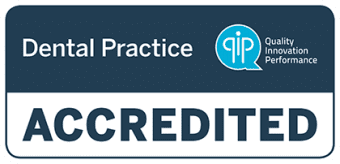Pregnancy can lead to dental problems in some women. Just like the rest of your body, your teeth, gums and mouth are affected by hormonal changes.
Visiting a dentist and dental hygienist regularly is highly recommended both for your own wellbeing and for that of your unborn child. You should also be assured that oral health maintenance and dental care is both effective and safe throughout pregnancy1.
Maintaining your oral health:
Hormonal changes will make your gums more susceptible to inflammation and infection, so regular check-ups and professional cleans are important, in conjunction with a good at-home routine which should include brushing at least twice per day and flossing once per day.
Changes in your oral health:
Your increased hormones can cause a dry mouth, oral ‘pregnancy tumours’ (pyogenic granulomas), and can affect your body’s natural response to dental plaque (the layer of biofilm that builds up on your teeth daily) which can lead to, or exacerbate, gum disease. Whilst many of these problems are temporary and should resolve after your baby is born, it’s important not to ignore the symptoms. Your dental professional can also provide treatments to lessen the symptoms.
Morning sickness:
Whilst morning sickness is beyond your control, it can cause damage to your teeth known as enamel erosion. To reduce the risk of damage to your teeth, firstly refrain from brushing your teeth for at least one hour after a bout of sickness. The action of brushing too soon can actually cause further damage. What you can do instead of brushing your teeth straight away, to reduce the risk of enamel erosion, is:
- Immediately rinse your mouth out with either water, or an alcohol-free mouthwash.
- Chew sugar-free gum to stimulate saliva flow to help neutralise and wash away acid.
- Eat acid-neutralising foods such as milk, cheese or yoghurt.
- Smear a small amount of fluoridated toothpaste on your teeth to give you additional protection.
Cravings:
If you are craving sweet foods, it’s important to be mindful that a regular desire for sugary foods may increase your risk of tooth decay. To help prevent tooth decay, you can drink water after consuming sugary foods (swishing it around your mouth) to help remove some of the sugary particles left on your teeth, and chew sugar-free gum to stimulate saliva flow to help remineralise your teeth. It is also better to have a larger portion of sweet foods in the one sitting, rather than snacking on smaller amounts of sweet food constantly throughout the day. This will limit your exposure to ‘acid attacks’ on your teeth.
Pre-pregnancy planning:
You are less likely to suffer from dental problems during pregnancy if your teeth and mouth are in good oral condition before falling pregnant. This includes your regular at-home routine of brushing and flossing, and routine dental visits. If you are planning on falling pregnant, and you have not been for a check-up in the last 6 months, it’s a good idea to visit your dentist and oral hygienist for a comprehensive clean and exam. This will start you off on the right track to keep a good oral hygiene routine throughout pregnancy and beyond.
For more information on pregnancy and oral health you can visit our Pregnancy and Oral Health page here.
References:
- Frontiers in Immunology: Role of Maternal Periodontitis in Preterm Birth (2017)


